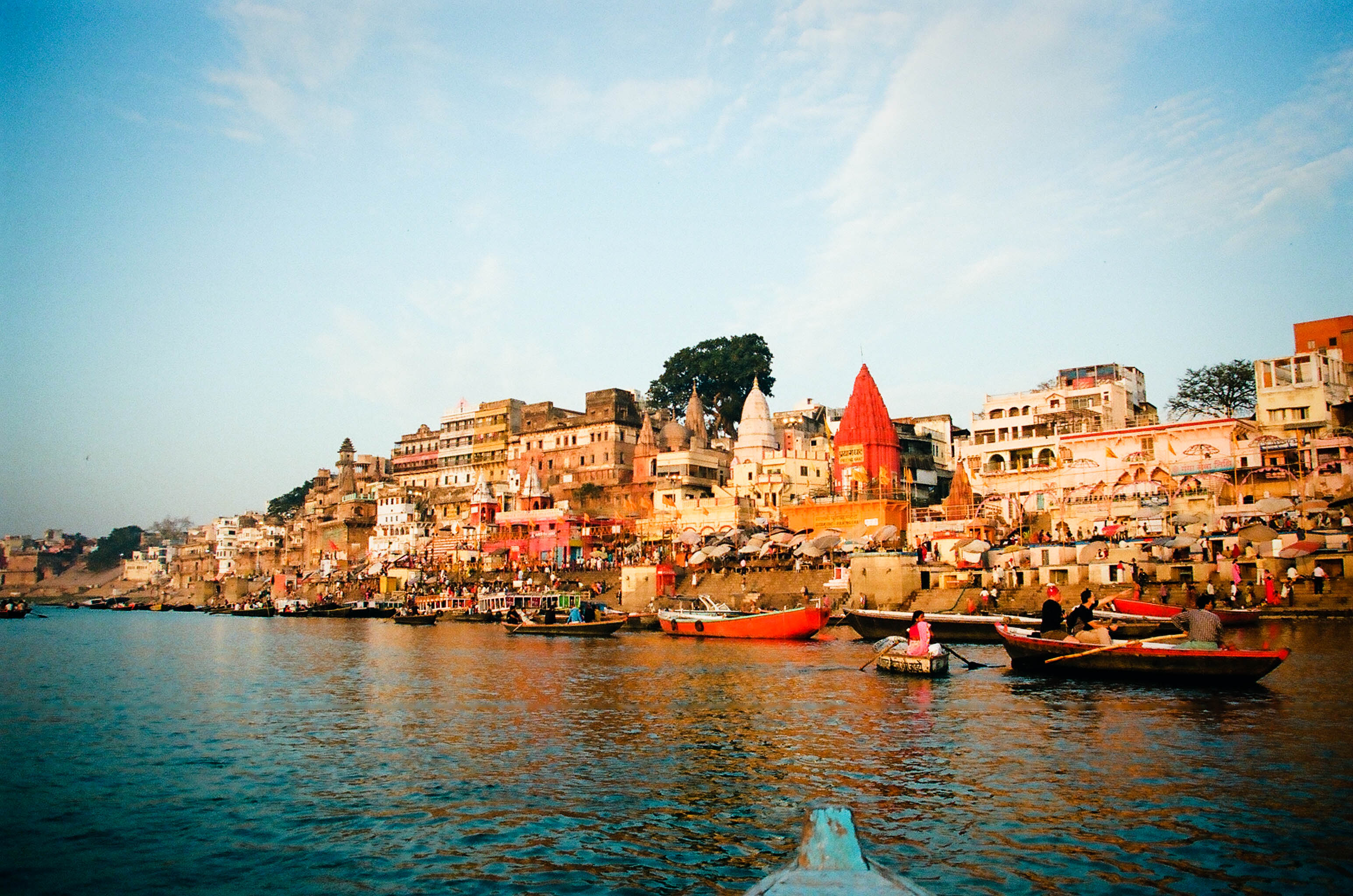In a spiritual tribute reminiscent of the grand rituals in the holy city of Kashi (Varanasi), the town of Jhansi, located in the heart of Bundelkhand, has recently started a new tradition – the Aarti ceremony on the banks of the Pahuj River. This ceremony not only pays homage to the river but also underscores the importance of environmental conservation, encouraging a deep connection between faith and nature.

The Beginnings of Pahuj River:
The Pahuj River, also known by its ancient name, Pushpavati, is a tributary of the Yamuna River. It originates in the hilly terrain near Tikamgarh district in Madhya Pradesh, close to Jhansi. Historically, the river has been a lifeline for the people of this region, providing water for sustenance, agriculture, and spirituality.
Significance of River Worship:
In the tapestry of Indian culture, rivers hold a special place. They are often revered as deities and are considered the givers of life. Water, the elixir of life, is believed to purify both the body and the soul. Therefore, the ritualistic worship and devotion offered to these sacred water bodies have been a tradition that has transcended centuries.
Merging Faith and Environmental Conservation:
The Aarti ceremony along the Pahuj River is not only a spiritual spectacle but also a symbolic act of environmental preservation. The organizers aim to connect the local community with the importance of safeguarding their natural resources. Through this ritual, they emphasize the sanctity of the river and how it sustains life.
Words from Rohit Pandey:
During one of these Aarti ceremonies, Rohit Pandey, a local resident, expressed, "In Indian culture, those who provide are revered as deities, and their worship and reverence is part of our tradition. Water is the essence of life. It is for this reason that we have continued the tradition of worshipping and venerating the rivers for centuries."

Upholding a Timeless Tradition:
The Pahuj River Aarti ceremony in Jhansi echoes the sentiments of countless communities across India who have preserved and passed on their cultural heritage. It reminds us of the enduring relationship between humans and nature, a relationship that is rooted in respect, gratitude, and protection.
As we witness the Aarti ceremony along the Pahuj River in Bundelkhand, we are reminded of the sacredness of rivers in our culture and the urgent need to safeguard these lifelines. This tradition, inspired by the holy city of Kashi, is a testimony to the timeless bond between faith and the environment. Let us hope that it not only continues but also inspires others to protect our natural resources.











